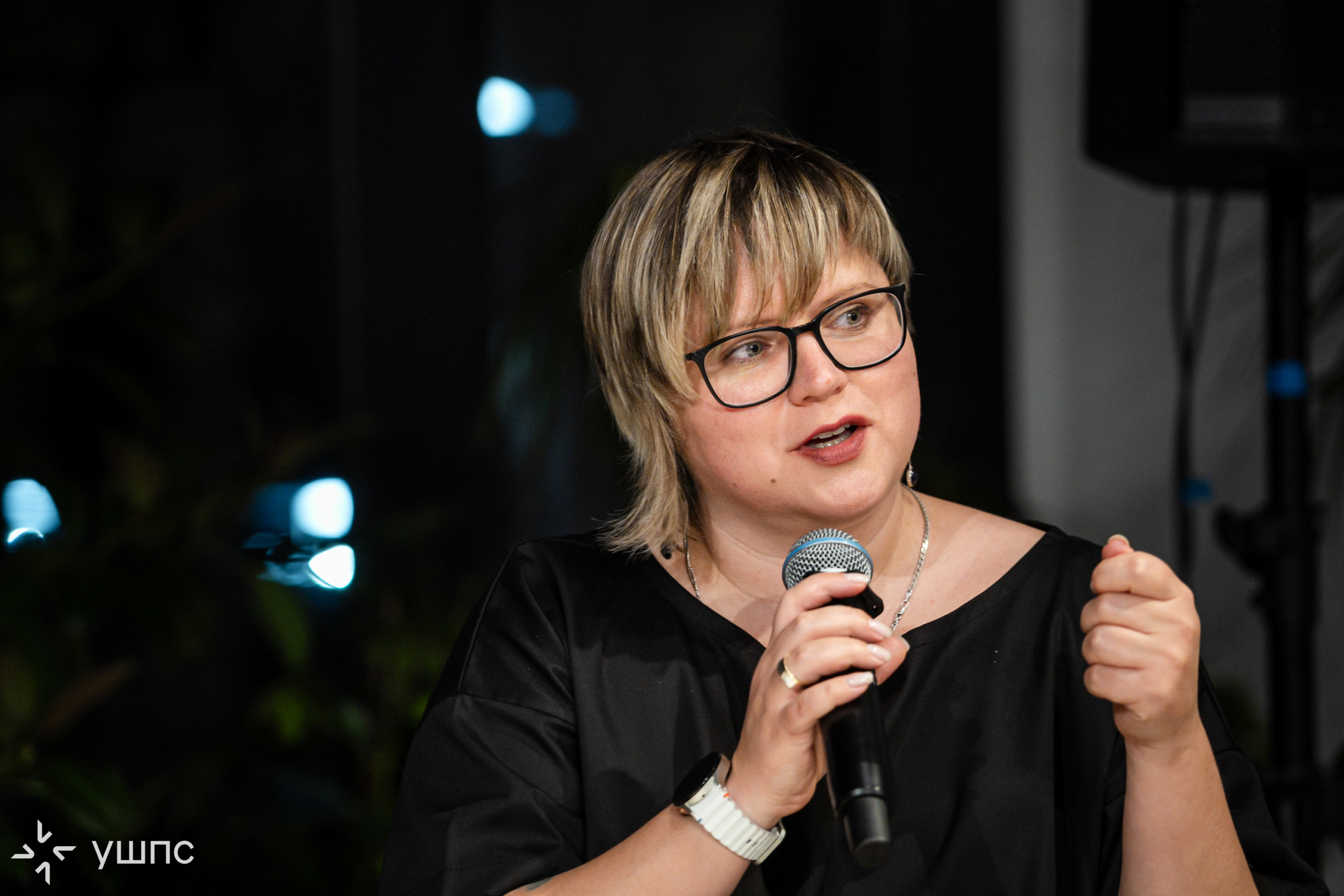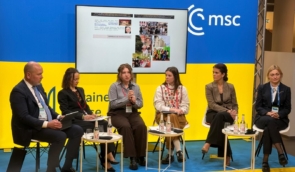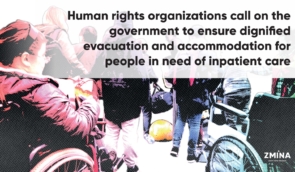Children aged 14-17 from the occupied territories are looking for opportunities to move to the government-controlled territories
This was shared by Alena Lunova, Advocacy Director of the Human Rights Centre ZMINA, during a conversation within the framework of the Resilience Dialogues of the National Platform of Resilience and Cohesion project. She emphasised the need to maintain informational, social and cultural ties with those Ukrainian citizens who remained in the temporarily occupied territories.
 Alena Lunova
Alena Lunova“Firstly, we could communicate with the residents of the occupied territories in a balanced way. It seems that we do not have proper communication channels. But they in the occupied territories hear everything that the Ukrainian authorities say about them. And it is important to understand this. Where Ukrainian authorities speak badly about them, Russian propaganda will pick up on it, disseminate it. Therefore, Ukraine’s communication should be as balanced as possible. Secondly, communication must be consistent. It can’t be that one official says “take a Russian passport for survival’ and another says “don’t take it, it’s a betrayal,” said Alena Lunova.
The Advocacy Director of ZMINA noted that it is irresponsible for the state not to tell people under occupation how to live in the future.
“Thirdly, it is necessary to organise support channels for those who leave the occupation. This is especially true for support for young people who may leave the occupation to live in the territories controlled by Ukraine. It was quite unexpected for us, but our colleagues who are involved in the evacuation of people from the TOT turned to us because they had a lot of applications for evacuation from children. Covert requests, from children aged 14 to 17, who are not yet adults. Our task is to look for communication with them“, said Alena.
People who have left the occupation have problems with housing in the territories controlled by Ukraine, and this forces many to leave the country and return, or go abroad. “But this does not happen for thousands, because people can return to the occupied territories only through one point – Sheremetievo airport, where a real filtration point is set up, where they wait for several days for a decision and very often receive a refusal to enter the territory of the Russian Federation for 10-20-50 years.“
The comment by the ZMINA representative came at a time of public discussion provoked by MP Maksym Tkachenko‘s statement to Ukrinform. He said that 150,000 internally displaced citizens had returned to the temporarily occupied territories, 70,000 of them to Mariupol. Although the author later denied these reports, it led to a wave of outrage expressed by users of various public websites and media. Even the official statement issued by Maksym Tkachenko later did not help: “There is no such data. It was my unfounded and emotional assumption.“
Alena Lunova also published her own commentary, which was a reaction to public accusations of collaborationism by residents of the temporarily occupied territories. In a post on her Facebook page, the ZMINA representative noted: “Living under occupation is not a crime. So please stop blaming people who stayed in the occupation/sometimes visit their homes, relatives/or return to the occupied territories to live, etc. This is their business (risky and very undesirable for many, but it is what it is). However, in order to build a state policy on internal displacement, it would be worth asking why people leave and where they go (to the TOT or abroad to other countries), whether there are really thousands of such people, or whether they return/plan to return later. Or is it easier to say that they all love Putin?“
The National Platform of Resilience and Cohesion provides an opportunity for representatives of Ukrainian civil society and the expert community to speak out. The platform’s projects are funded by European organisations, including the EU.
This material has been funded by UK International Development from the UK Government; the views expressed do not necessarily reflect the official position of the UK Government.
If you have found a spelling error, please, notify us by selecting that text and pressing Ctrl+Enter.















